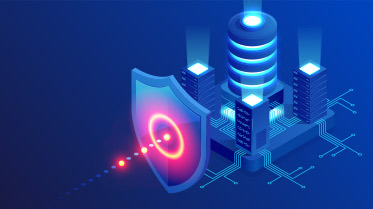May 9, 2022 - by Synoptek
The world has surpassed the two-year mark on the COVID-19 pandemic, but the risk of advanced security threats continues to loom large. In the post-pandemic world, organizations must keep up with the latest Managed Network Security trends while ensuring everyone in their network is practicing stringent security best practices, making sure their business stays safe and secure as they cruise through digital transformations and enterprise migrations.
Managed Network Security: Why It’s More Important Than Ever
For organizations across any industry vertical, network security plays a huge role in preventing, detecting, and mitigating risks – especially as the world gravitates towards the hybrid work model. With physical enterprises boundaries getting increasingly blurry and employees relying on an array of new and unsecured devices and networks to connect to enterprise networks, the attack surface is only increasing.
Since bad actors today use a variety of advanced and sophisticated attack tactics and mechanisms to infiltrate constantly expanding enterprise networks, it is important to have policies in place that are designed to effectively assess, monitor, and manage the enterprise network and proactively detect security threats and unauthorized intrusion. Here are 5 Managed Network Security best practices to embrace:
1. Data Loss Prevention is Critical
When it comes to thwarting network security attacks, employees today are considered the first line of defence. But not all employees understand the magnitude of the responsibility placed on their shoulders – those who do, lack access to the right tools to enhance security posture. To prevent data from seeping between the cracks, it is essential to have stringent access control measures in place, and allow only authorized personnel access to critical business data. It is also a good practice to monitor how your partners and vendors use data and take steps to safeguard security and privacy.
2. Continuously Conduct Assessments
Effective Network Security isn’t just a one-time activity. Since all organizations constantly undergo several changes, with new employees, customers, vendors, and partners coming in and going out, conducting periodic assessments to identify loopholes and gaps is extremely important. For organizations that work with third-party contractors, such assessment is all the more necessary as it can have a negative impact on the overall security. Limiting the number of access points to your network and ending access to those no longer associated with your business is a great way to maintain a good level of network security.
3. Awareness Training is Key
Your employees will only be able to protect the organization against attacks if they know what to do. To avoid them from being your weakest link, make sure to conduct frequent and comprehensive awareness training and educate them about the latest cybersecurity best practices. Empower them to possess the ability to recognize phishing emails, identify risky apps, and ensure valuable information is not shared with people outside the organization. Emphasize on the use of strong passwords and enable them with the tools they need to maintain proper cybersecurity hygiene.
4. Clearly Define Policies
If you want to protect your organization against attacks, you need to clearly define policies that not only act as directives but also hold employees accountable in case of non-compliance. Well-planned network security policies can help govern how you need to implement and maintain security across your growing network, including rules for access and operation, as well as steps to take in the event of a breach via an incident response plan.
5. Update Your Patches
Updating and patching up your network and security devices is equally important to prevent exploitation via known and unknown vulnerabilities. Since unpatched software is a major cause for most data breaches, installing and updating the latest security patches and updates across the organization can not only enhance your organization’s risk management posture; it can also help protect the privacy and security of your employees, customers, and other stakeholders.
Boost Your Security Posture with Managed Network Security
Security incidents, whether from inside or outside the organization, have the power to bring an entire organization down. Although security teams have been battling a landscape of constantly evolving attacks via traditional security tools and approaches, it is time to engage with a Managed Network Security Provider who can help you take a modern approach to network security which includes, preventing data loss, conducting assessments, training employees, defining policies, and updating patches. Such a layered approach to network security can not only protect against evolving threats, but also your people from being the Achilles heel of your organization.


